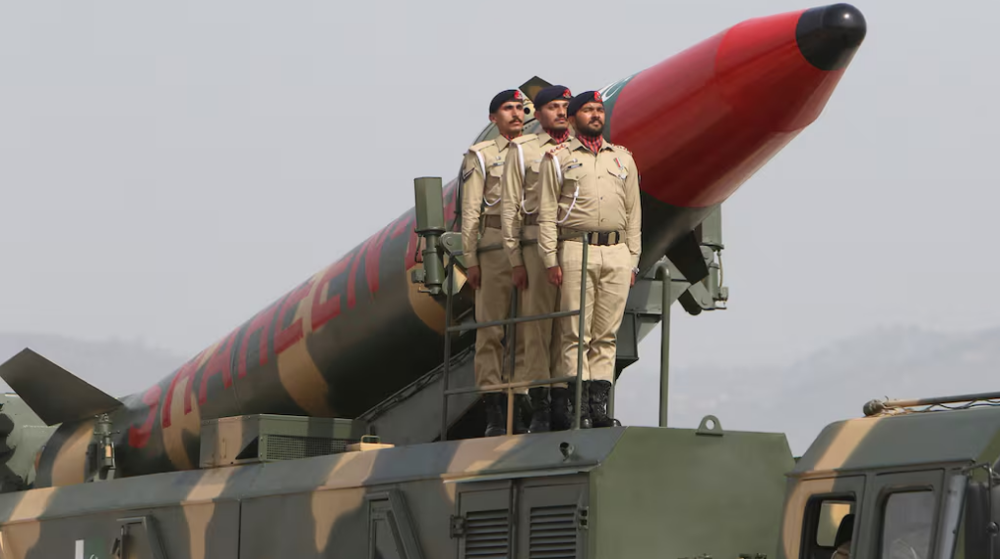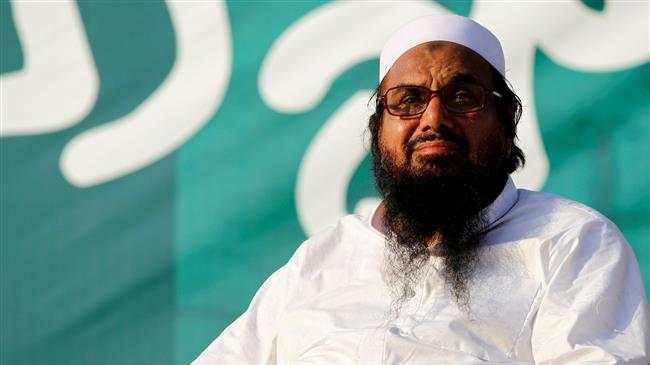Pakistan court gives 11 years in jail to Mumbai attacks mastermind
A Pakistani court has sentenced Hafiz Saeed, the alleged mastermind of the 2008 terror attacks in the Indian city of Mumbai, to 11 years in jail after it found him guilty of terrorism financing charges.
"Hafiz Saeed and another of his close aides have been sentenced in two cases of terrorism financing," prosecutor Abdul Rauf Watto told Reuters on Wednesday.
"The total punishment in both the cases was 11 years but he will serve five and a half years in jail as the two punishments will run concurrently," said Saeed's lawyer Imran Gill, adding that he would appeal.
The court’s decision comes days ahead of a meeting of the Financial Action Task Force (FATF), a world financial watchdog, next week to decide whether to blacklist Pakistan for its failure to curb terror financing.
Saeed was indicted in Pakistan last December with collecting funds for his banned organizations, which are designated by the UN as terrorist groups.
Saeed is the founder of the outlawed Lashkar-e-Taiba (LeT), a militant group blamed by India for the four-day Mumbai siege, in which 166 people, including foreigners, lost their lives.
Pakistan's counterterrorism police arrested Saeed in July last year, days before a visit to Washington by Prime Minister Imran Khan. He was taken into custody in Punjab province on July 17 while traveling from Lahore to the town of Gujranwala.
Saeed has been arrested and released several times in recent years. In 2017, he was put under house arrest by Pakistani authorities and subsequently released after being cleared of charges against him, drawing strong criticism from the government in New Delhi.
LeT is known for attacking Indian security forces and government targets.
Saeed, however, has denied any involvement in the Mumbai attacks, saying he has no ties to militant groups.
Until the terror financing case, Saeed had for months lived freely in Pakistan, often addressing anti-India rallies, for which he became popular.

Iran condemns deadly bomb blast in Pakistan’s Balochistan

Pakistani military conducts airstrikes on militant hideouts in eastern Afghanistan

Pakistan dismisses US official’s allegations about missile program
In pursuit of justice: Israeli soldier accused of war crimes submitted to Swedish court
Iran to soon unveil advanced drone, missile cities: IRGC chief
California's fires reminiscent of Israeli savagery in Gaza: Zarif
VIDEO | Press TV's news headlines
Israeli ministers discuss plot to divide Syria: Report
Pezeshkian felicitates Aoun on election as Lebanon’s president
VIDEO | Brutal murder of journalist in India prompts calls for justice
VIDEO | Iran unveils new AI drone in Great Prophet 19 military drills







 This makes it easy to access the Press TV website
This makes it easy to access the Press TV website